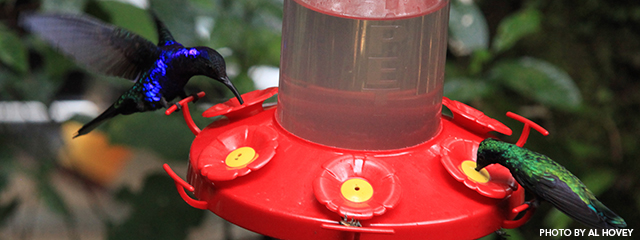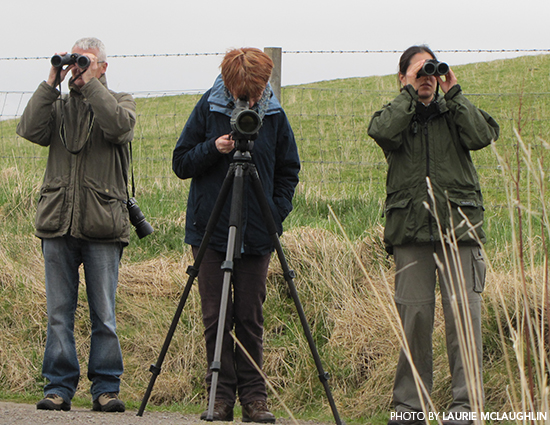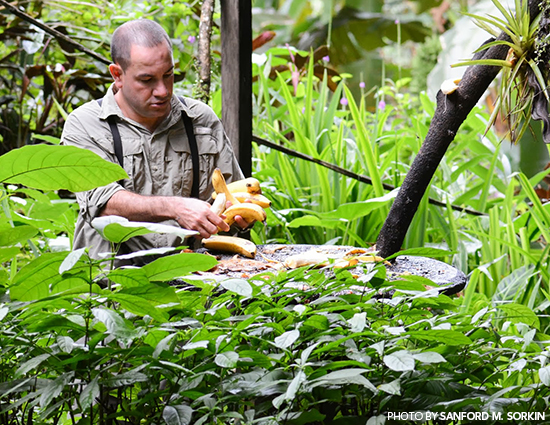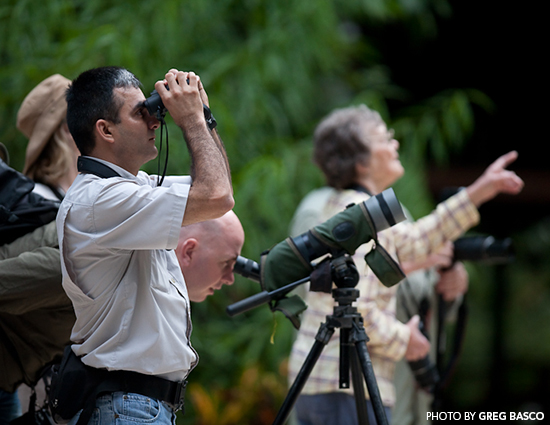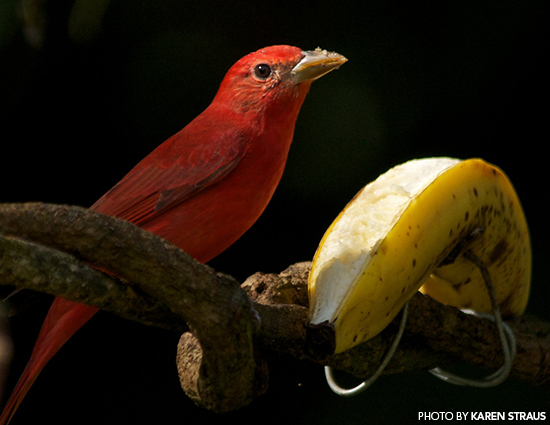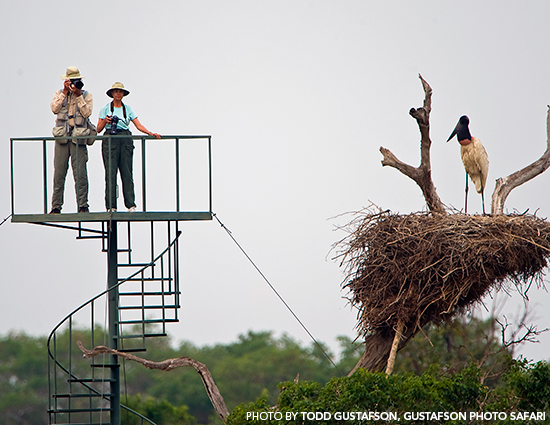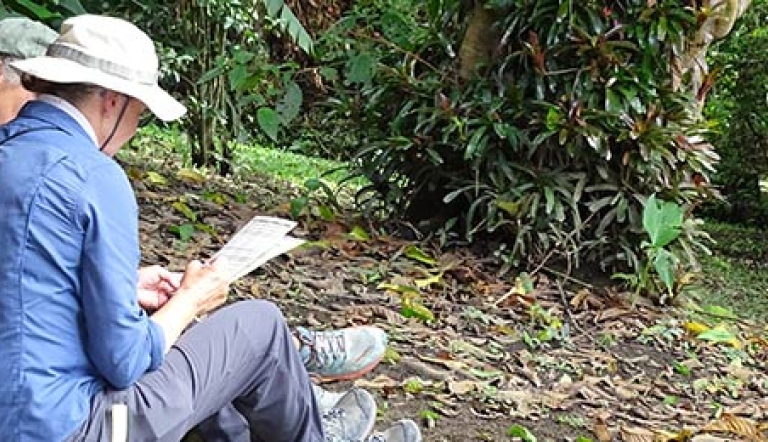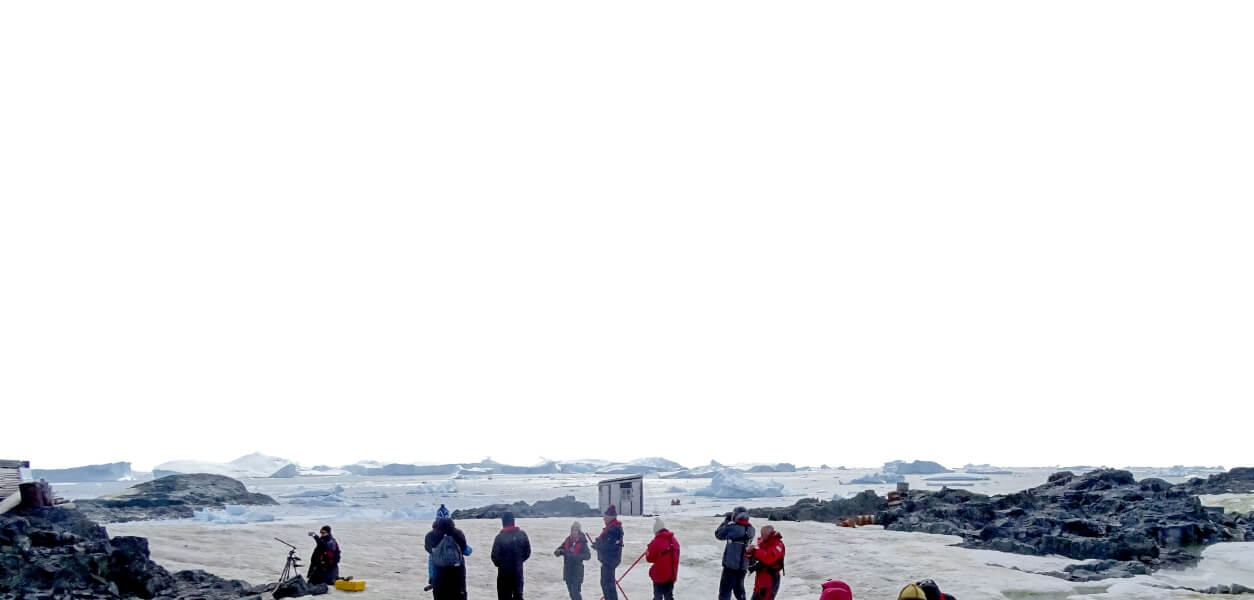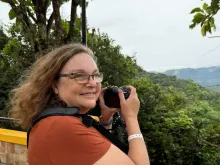According to a 2006 U.S. Fish and Wildlife Service survey, about 48 million people in the U.S.—or 21 percent of the population—identify as birders. As interest in birding continues to grow, it's important to ensure the health and safety of birds and their environment. Whether you're a backyard birder or a serious ornithologist, the following code of ethics from the American Birding Association offers some useful guidelines for your next outing.
1. Promote the welfare of birds and their environment.
a. Support the protection of important bird habitat.
b. To avoid stressing birds or exposing them to danger, exercise restraint and caution during observation, photography, sound recording, or filming. Limit the use of recordings and other methods of attracting birds, and never use such methods in heavily birded areas or for attracting any species that is Threatened, Endangered, or of Special Concern, or is rare in your local area. Keep well back from nests and nesting colonies, roosts, display areas, and important feeding sites. In such sensitive areas, if there is a need for extended observation, photography, filming, or recording, try to use a blind or hide, and take advantage of natural cover. Use artificial light sparingly for filming or photography, especially for close-ups.
c. Before advertising the presence of a rare bird, evaluate the potential for disturbance to the bird, its surroundings, and other people in the area, and proceed only if access can be controlled, disturbance can be minimized, and permission has been obtained from private landowners. The sites of rare nesting birds should be divulged only to the proper conservation authorities.
d. Stay on roads, trails, and paths where they exist; otherwise keep habitat disturbance to a minimum.
2. Respect the law and the rights of others.
a. Do not enter private property without the owner’s explicit permission.
b. Follow all laws, rules, and regulations governing use of roads and public areas, both at home and abroad.
c. Practice common courtesy in contacts with other people. Your exemplary behavior will generate goodwill with birders and non-birders alike.
3. Ensure that feeders, nest structures, and other artificial bird environments are safe.
a. Keep dispensers, water, and food clean and free of decay or disease. It is important to feed birds continually during harsh weather.
b. Maintain and clean nest structures regularly.
c. If you are attracting birds to an area, ensure the birds are not exposed to predation from cats and other domestic animals, or dangers posed by artificial hazards.
4. Group birding, whether organized or impromptu, requires special care. Each individual in the group, in addition to the obligations spelled out in items #1 and #2, has responsibilities as a group member.
a. Respect the interests, rights, and skills of fellow birders, as well as those of people participating in other legitimate outdoor activities.
b. Freely share your knowledge and experience, except where code 1(c) applies. Be especially helpful to beginning birders.
c. If you witness unethical birding behavior, assess the situation and intervene if you think it prudent. When interceding, inform the person(s) of the inappropriate action and attempt, within reason, to have it stopped. If the behavior continues, document it and notify appropriate individuals or organizations.
Group leader responsibilities: Amateur and professional trips and tours
a. Be an exemplary ethical role model for the group. Teach through word and example.
b. Keep groups to a size that limits impact on the environment and does not interfere with others using the same area.
c. Ensure everyone in the group knows of and practices this code.
d. Learn and inform the group of any special circumstances applicable to the areas being visited (e.g. no tape recorders allowed).
e. Acknowledge that professional tour companies bear a special responsibility to place the welfare of birds and the benefits of public knowledge ahead of the company’s commercial interests. Ideally, leaders should keep track of tour sightings, document unusual occurrences, and submit records to appropriate organizations.
Additional copies of the Code of Birding Ethics can be obtained from ABA. The ABA Code of Birding Ethics may be reprinted, reproduced, and distributed without restriction. Please acknowledge the role of ABA in developing and promoting this code.
